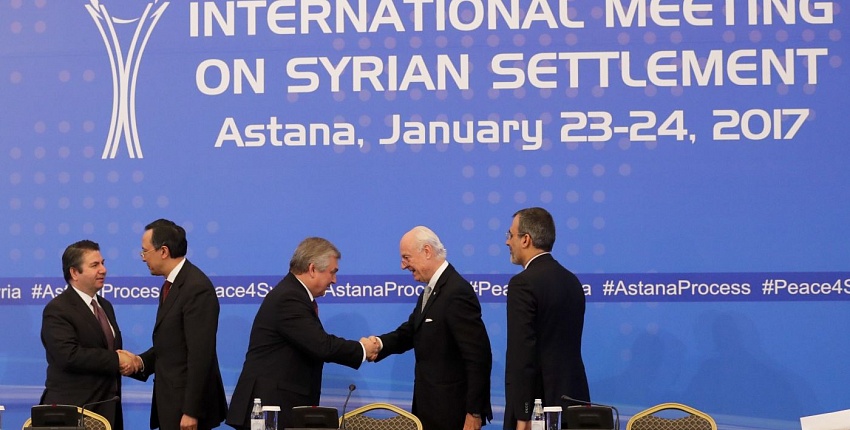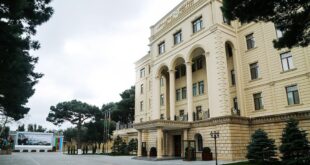
The intra-Syrian talks in Astana on January 23 resulted from active diplomatic efforts by Russia, Turkey and Iran. Currently the three are synchronizing their diplomacy and military operations in the Syrian conflict. Despite the tangled web of disagreements between external and internal actors, the regional powers know that resolving the conflict as soon as possible is a matter of vital concern for them.
Syria has a huge number of opposing groups with backing from foreign powers. There are dozens of fronts in this war of all against all. The Astana meeting has laid the foundation for a step-by-step settlement involving several major parties to the conflict, preparing the ground for addressing security and humanitarian problems. So far, there are more points of convergence than contradiction between the participants in the meeting.
The direct participants in the conflict and the stakeholder states each have their own vision for postwar Syria, but this should not become an obstacle to an agreement on fighting the absolute evil, ISIS, observing the ceasefire, and delivering humanitarian aid to the population. For the first time in years, the liberation of Aleppo and coordination of combat operations conducted by some previously opposing sides in the Syrian conflict are creating an atmosphere of trust and conditions for successes at talks in the future.
The Syrian conflict is influencing the South Caucasus in two principal ways. First, more than a thousand citizens of Russia (mostly from the North Caucasus), Azerbaijan and Georgia have joined the jihadists and are members of terrorist movements in Syria. This factor is a threat to these countries’ security and calls for active cooperation between their related agencies. On the other hand, there is a limited number of Syrian refugees in Armenia, mostly ethnic Armenians, who are likely to be settled in the occupied territories in Nagorno-Karabakh, something that creates additional tensions between Azerbaijan and Armenia.
Second, the active cooperation between Russia, Turkey and Iran may have further repercussions for the South Caucasus. Historically, the three were the main rivals in the region. Due to geography and history, Russia, Turkey and Iran adjoin the region, but neither has a long border with all three South Caucasian states (with the exception of Turkey’s 16-kilometer border with the Nakhichevan Autonomous Republic of Azerbaijan, which, in turn, has no land link with Azerbaijan. To implement any projects in the region, you have to cooperate with at least two South Caucasian states. The Middle East neighbors of the South Caucasian countries can have a positive influence on the security situation in the region and create conditions for implementing major infrastructure projects and settling conflicts by coordinating positions, building trust, and promoting cooperation.
Farkhad Mammadov is Director of Center for Strategic Studies under the President of the Republic of Azerbaijan.
 Oval Useful news from Azerbaijan and Caucasus
Oval Useful news from Azerbaijan and Caucasus

